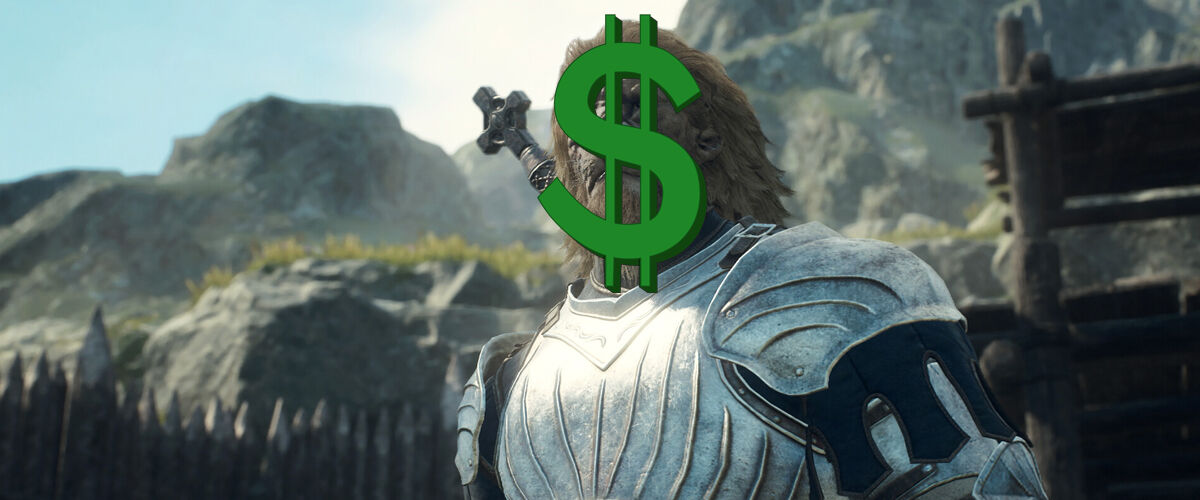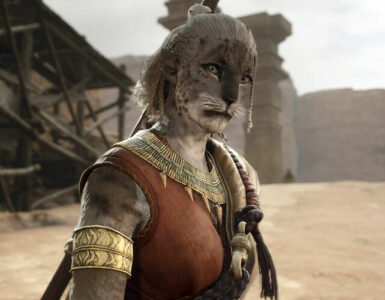The continued integration of microtransactions into single-player video games has sparked wider debates within the gaming community, raising questions about its impact on player experience, and the integrity of game design. With new titles from big studios, including Capcom’s Dragon’s Dogma 2 and Sega’s Like A Dragon: Infinite Wealth, thrusting this issue further into the spotlight, it is important to examine the implications and explore the nuances of this contentious phenomenon.
In simple terms, microtransactions are additional purchases that players make within the confines of a game using real money, and there are instances of one-time amounts, or recurring fees that cover member subscriptions, virtual currencies for use within the game, and character customisation options including costumes and weapons, among other examples. And these fees are above and beyond the one-time fee players pay for a copy of the game. There have been many instances where the combined amount paid via transactions easily surpasses the original price of the game itself.
And before you ask, yes, loot boxes, otherwise known as a random assortment of rewards for a fee, are also considered microtransactions, but these include an element of gambling, and we won’t be touching this subject as it deserves a separate discussion of its own.
Microtransactions and game design

One of the biggest offenders of microtransactions in single-player games falls on a titan in the gaming industry, Capcom. The developer, known for its Street Fighter and Resident Evil franchises, has faced criticism for its approach to microtransactions, particularly in single-player titles like the Resident Evil 4 remake and Monster Hunter Rise (in the form of weapon upgrades, armour pieces, one-time-use consumable items, and more). However, the recent outcry surrounding Dragon’s Dogma 2 highlights a deeper rift between player expectations and developer practices.

The crux of the issue lies in the intersection between microtransactions and game design philosophy. Dragon’s Dogma 2 boasts challenging gameplay and an immersive world and can be played without paying anything other than the original copy of the game. The introduction of microtransactions offers convenience but ultimately risks undermining the game’s core principles. Items like Wakestones, which allow players to resurrect themselves or other non-player characters, are crucial for in-game survival, and making them available for purchase at S$1.30 blurs the line between skilful gameplay and monetary shortcuts.
Similarly, the availability of S$4 Portcrystals, which enable fast travel from anywhere on the map to the location of the Portcrystals of your choosing has sparked accusations of selling a feature that challenges the deliberate design choice of restricted traversal in the game. The tension between convenience and immersion underscores the ethical considerations developers must grapple with when implementing microtransactions.
While microtransactions ostensibly offer convenience to players, their presence raises concerns about the integrity of gameplay progression. Microtransactions disrupt the delicate balance between challenge and reward, undermining the immersive experience that single-player games strive to deliver. By offering shortcuts to progress, developers risk diluting the sense of accomplishment inherent in overcoming in-game obstacles through skill and perseverance.

In addition, certain single-player games encompass a social element that can also be impacted by microtransactions. For example, the popular mobile game Candy Crush Saga encourages players to purchase stat-boosting microtransactions that augment their in-game abilities. While these transactions don’t directly confer advantages in head-to-head matches, they exert a significant impact on where players land in the rankings.
The vexing part of this is that while adults have the option to restrict their own spending on such elements, games targetting children are effectively circumventing logical thinking by pressuring young children who have yet to factor in understanding financial responsibility to spend money and take shortcuts for quick wins, over developing a level of experience and persistence in developing game playing skills.
Furthermore, the trials and tribulations faced by players in navigating microtransactions can fuel suspicions that game developers have engineered mechanics to subtly push players towards spending more. As gamers grapple with challenges and frustrations within the game, the nagging question arises — are these obstacles or limitations intentionally designed to encourage additional purchases? And what if it’s aimed at children? This can raise doubts about the integrity of gameplay and the motivations behind developer decisions.

It’s easy to compare these routes of convenience to the cheat codes of yore. Players who want to experience the game but don’t have time to participate in ample grinding can choose to turn to these microtransactions to streamline the process, or simply give themselves a more easy-going adventure. And if not, players simply don’t have to engage with them.
Of course, cheat codes used to be free, providing all players with a level playing field instead of being determined by financial prowess.
Transparency and consumer trust

In the case of Like A Dragon: Infinite Wealth, developed by Ryu Ga Gotoku Studio and published by Sega, the microtransactions extend beyond merely paying for one-time-use items to encompass issues of transparency and consumer trust.
Traditionally, the Yakuza / Like A Dragon series has treated players to New Game+ without additional charges. However, Like A Dragon: Infinite Wealth locks this mode behind the Deluxe (S$79.90) and Ultimate (S$94.90) Editions of the game, which are priced significantly higher than their regular counterpart (S$69.90). Worse still, the lack of clarity on the game’s Steam page leaves potential buyers in the dark about what each edition entails. It’s understandable for players to assume that a series known for its generosity in content offerings would continue to provide New Game+ as part of the standard package.

But the frustration doesn’t end there. The Ultimate Edition of Like a Dragon: Infinite Wealth compounds the issue with a hefty price tag and a glut of in-game bonuses. While cosmetic items are par for the course in deluxe editions, the inclusion of game-altering boosters and level-up canisters disrupts the natural progression of the game, leaving players feeling like they’re paying extra for an unfair advantage.
This isn’t the first time the Yakuza series has dabbled in divisive downloadable content (DLC) practices. Previous releases saw essential content like difficulty modes and postgame dungeons locked behind paywalls, causing outcry among fans. While some of these practices were integrated into international releases or softened over time, the trend of locking significant content behind premium editions persists.
Despite the backlash, it’s unlikely that developers will abandon these tactics anytime soon, leaving players to grapple with the reality of sneaky microtransactions in their favourite franchises. It’s a familiar refrain in an industry rife with monetisation strategies. More recently, Ubisoft also came under fire for a similar practice of gating content (that players expect as part of the full game) behind a paywall in their upcoming game, Star Wars Outlaws.
Navigating player expectations and developer practices

Amidst the uproar surrounding microtransactions, players should feel empowered to raise concerns whenever they perceive a departure from fair gaming practices. While microtransactions may offer additional revenue streams for developers, they must not come at the expense of player enjoyment or compromise the integrity of gaming experiences.
Not all in-game purchases should raise alarm bells. DLC represents a form of microtransaction that enriches the gaming experience by introducing new content to an existing game. Whether it’s a fresh storyline, additional maps, characters, or a blend of all, DLC allows players to extend their adventures beyond the main story.
However, when poorly implemented, microtransactions have the potential to poison the well of player experience. The nagging suspicion that developers may have tailored game mechanics to nudge players towards spending can taint the enjoyment of any title. Despite assurances to the contrary, the mere presence of microtransactions can sow seeds of doubt, leaving players questioning whether they’re being subtly manipulated into parting with their hard-earned cash. Even if such manipulation isn’t the case, the lingering doubt can cast a shadow over the gaming experience, detracting from the immersion and enjoyment that players seek.

To paint all game developers as money-grabbers would be unfair. Many developers recognise the value of fostering goodwill among their fanbase by offering free DLC. Titles like the critically acclaimed Hollow Knight and the beloved Stardew Valley exemplify this ethos, delivering hours of extra content at little to no cost. These developers understand that by reinforcing their games with additional content, they cultivate a loyal community of players who, in turn, spread positive word-of-mouth and provide invaluable advertising.
Moreover, an increasing number of developers have taken a stand against predatory microtransaction practices. Notable voices include Studio CD Projekt, renowned for titles like Cyberpunk 2077 and The Witcher 3: Wild Hunt, and Stellar Blade game director Kim Hyung-tae. As industry figures vocalise their opposition to exploitative monetisation strategies, players can hope for a future where gaming experiences are enriched without undue financial pressure.
Ultimately, the success of microtransactions in single-player games hinges on transparent communication, ethical design practices, and a commitment to delivering value-driven content. By listening to player feedback and prioritising consumer trust, developers can navigate the complex terrain of microtransactions while preserving the magic of gaming for generations to come.













